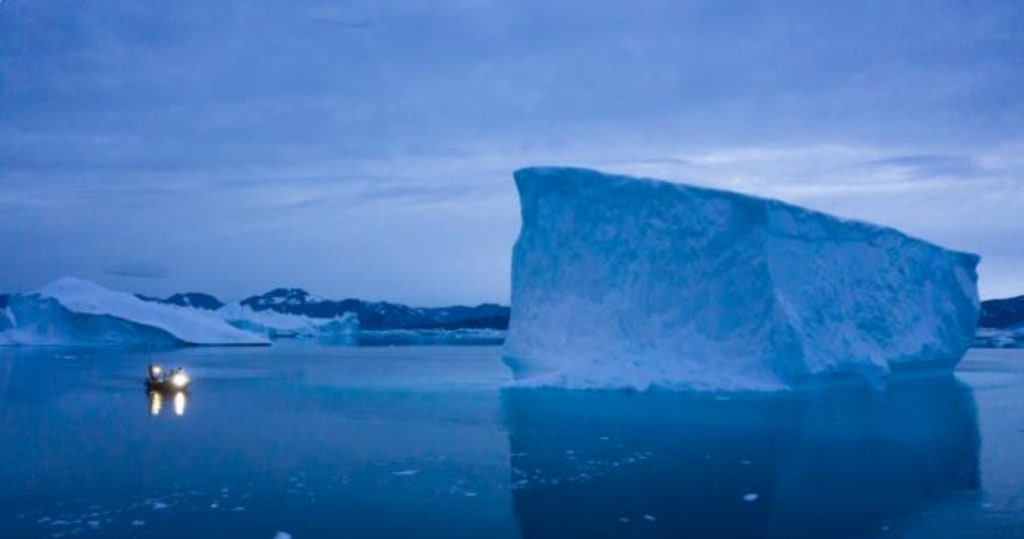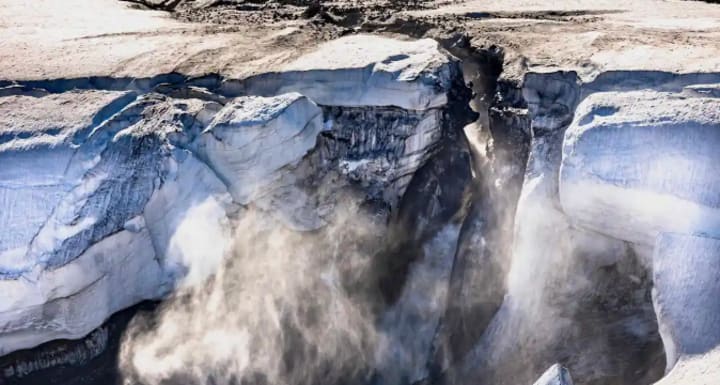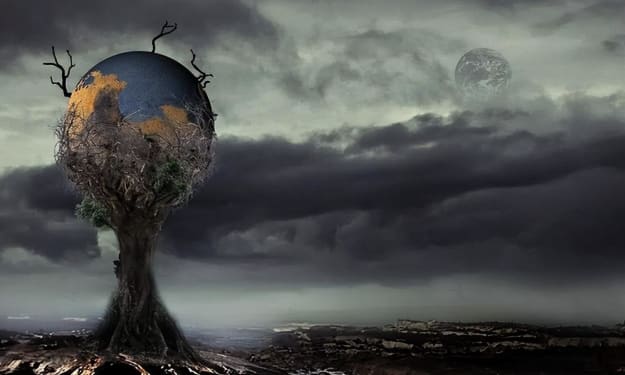The "zombie ice" has melted!
Sea level to rise 27 cm, Siberia also experiences the hottest summer in 7000 years

Greenland's "zombie ice" is melting faster, and this is bound to raise global sea levels by at least 10.6 inches (about 27 centimetres), according to a new study published in the international climate change journal Nature Climate Change. Scientists also warn that the sea level rise is irreversible and will occur shortly.
In addition, Siberia is also witnessing the hottest summer in the past 7,000 years. The latest research shows that the region has been cooling for thousands of years, but the mid-19th century interrupted this "cooling trend" and temperatures began to rise sharply, with the last 30 years being the highest in thousands of years.
Scientists warn of 'zombie ice' melting irreversibly
"Zombie ice" or "dead ice" refers to ice that remains attached to thicker ice sheets, as the "mother glacier" is being resupplied with less and less new snowfall, and the ice is no longer able to expand. Scientists have found that more than 120 trillion tons of ice in Greenland is considered to be this "zombie ice," and climate change is leading to the inevitable melting of large amounts of "zombie ice.
A study published in the international climate change journal "Nature Climate Change" on the 29th shows that the melting of Greenland's ice cap "zombie ice" will certainly raise global sea levels by at least 10.6 inches (about 27 cm). Scientists also said that no remedial measures are likely to reverse the change. Study co-author William Colgate, a sociologist with the Geological Survey of Denmark and Greenland, said, "This is dead ice, it will just melt and disappear completely from the ice cap. And no matter what climate measures we take now, this ice will eventually go into the ocean."
The study's prediction of sea level rise is reportedly more than twice the value previously predicted by scientists. And that's roughly equivalent to the global ocean rise caused by Greenland, Antarctica, and thermal expansion (expansion when seawater warms) combined over the last century. Lead author Jason Box, a scientist with the Geological Survey of Denmark and Greenland, emphasized that the study estimated only the minimum, or "very conservative lower limit," of sea level rise due to melting ice in Greenland. He said, "Sea level rise (will) only be greater in a continuing warming climate."
According to the study, sea levels could rise even 30 inches (78 centimetres) as Greenland's ice sheet melts. By comparison, last year's Intergovernmental Panel on Climate Change report predicted that melting Greenland ice could cause sea levels to rise by 2 to 5 inches (6 to 13 centimetres) by 2100.

Scientists have not been able to estimate how long the melting will take, and they speculate that this change in sea level could occur within the end of the century or at least until 2150, but these guesses are not yet supported by data. Colgate said that estimate is a best-case scenario, and that if we have a "melt year" as severe as 2012, then Greenland's melting ice sheet could trigger a 30-inch sea level rise. "That's how climate change works, where today's anomalies can become tomorrow's averages," Colgate said. Colgate said.
While 10 inches doesn't sound like much, it's the global average, according to Erin Dendrite, a professor of earth sciences at the State University of Boise. Some coastal areas will be hit harder, in addition to high tide flooding and storms that could be more severe. Coastal areas will become increasingly vulnerable and threaten about $1 trillion in global wealth, the analysis said. "It's like having one foot in the grave," Box warned.
Siberian heat "unprecedented" in last 7,000 years
Another study published last week in the international journal Nature Communications shows that northwestern Siberia is recording the hottest summer in the past 7,000 years. Temperatures in the region had been falling for thousands of years, but in the 19th century, they began to rise sharply.
The study says Siberia has become one of the regions with the strongest global warming. Heat waves have reached disturbing new levels in recent years, particularly in 2020, when temperatures in Siberia soared to a record 38 degrees Celsius in the Arctic Circle. In turn, the abnormally high temperatures in the Arctic have led to the rapid disappearance of sea ice, accelerated permafrost melting, and the frequency of extreme wildfires.
Endocrinologists from the Ural Branch of the Russian Academy of Sciences (RAD), Urals Federal University (Urdu), and the Institute of Plant and Animal Ecology used annual-resolution tree chronology records to reconstruct summer temperature changes over the past 7638 years on the Malaya Peninsula in northwestern Siberia, a hot spot for recent warming. The study found that anthropocentric warming interrupted a millennial cooling trend in the region. And the rate of industrial-age warming is unprecedented, sending summer temperatures up beyond the previous seven millennia, with both the average temperature over the last 30 years and the frequency of extreme summers soaring.
"Because of changes in the Earth's orbit, we expect a continuous, slow, and gradual decline in incoming summer solar energy over the last 8,000 to 9,000 years, resulting in a drop in temperatures in the near-polar regions of the Northern Hemisphere. However, the tree record from Malaya shows that this cooling trend was interrupted in the mid-19th century when temperatures began to rise rapidly and reached their highest values in recent decades," said Rash it Khabarovsk, the study's lead author.
The study once again shows that human activity not only affects climate change but has become its main determinant, the report said. And for Siberia, the hotter climate has had a devastating ripple effect on local ecosystems, human communities, and the built environment, among others, and it will continue to affect the entire global climate system.
About the Creator
Cindy Dory
When you think, act like a wise man; but when you speak, act like a common man.






Comments (1)
👍👍